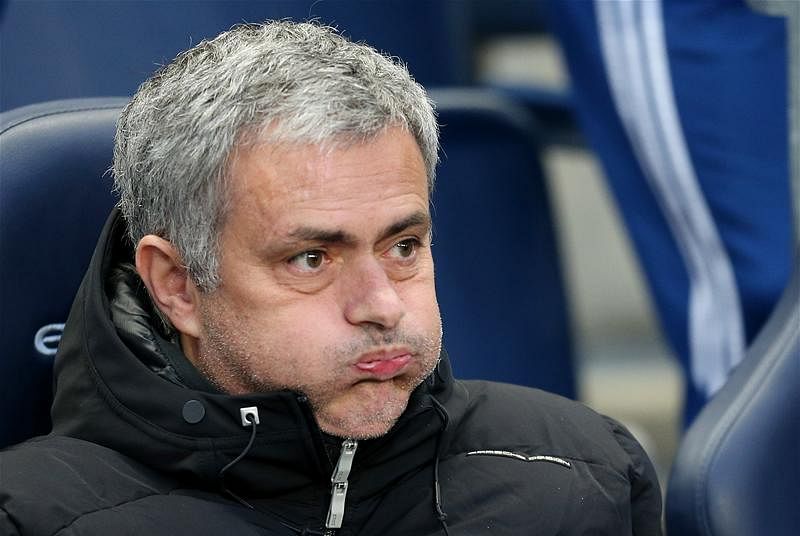
Analysis: Is Jose Mourinho taking a serious risk with his side?

Chelsea tasted defeat in the FA Cup at the weekend as they went down 2-0 against Manchester City, leaving Jose Mourinho’s men only with chances for success in the Premier League and Champions League over the remainder of the season.
While those two prizes are the biggest on offer in any case, the fact that Chelsea could have knocked City out and been left with a relatively straight-forward run to at least the semifinals will grate on the Chelsea boss and it will be seen as a case of opportunity lost. The other concern for the blues will be that they again started pretty much their first XI against City, with many of their key players looking lethargic and devoid of energy to break forward in numbers.
Against City, Chelsea failed to even muster a single shot on target and ultimately produced only three in total throughout the game. Furthermore, they saw just 44% of possession and only two corners, further evidence of their inability to mount meaningful attacks or enjoy concerted pressure.
Mourinho has more or less settled on a regular starting XI, perhaps altering one or two in midfield depending on opposition and injuries, but essentially fielding the same names whenever possible.

Petr Cech of course is the regular goalkeeper. Branislav Ivanovic and Cesar Azpilicueta are the starting full-backs, with Gary Cahill and John Terry centrally. In midfield, Ramires and Oscar play almost every game, with David Luiz and Nemanja Matic both heavily involved since the turn of the year (or since signing, in the case of the latter). Eden Hazard is an ever-present in the league. After that, Willian and Samuel Eto’o have forced their way into the starting XI…and there is little leeway otherwise.
Dropping Oscar for an extra central midfielder, or bringing in Frank Lampard now and then, is more or less the extent of Mourinho’s rotation.
Of course, he makes good use of in-game substitutions, with the likes of Fernando Torres, Andre Schurrle and now Mohamed Salah all featuring off the bench, but these players infrequently appear to come on to change the game in Chelsea’s favour. Rather, he relies on his starting players to bulldozer his team in front before using pace or fresh legs to carry a threat late on in games.
Whilst all managers will want to keep their first XI on the pitch as often as possible, tiredness comes into play with the volume of games they have to get through, while those on the sidelines are not offered a chance to keep up form or fitness with only handfuls of minutes off the bench each week.
Although not the most difficult tie they could have received, Chelsea will face tough opposition in a resurgent Galatasaray, now under the stewardship of Roberto Mancini who will of course be familiar with the London side’s set-up. Mourinho will be expected to go far in the competition, yet the same 12 or 13 players cannot be expected to perform in every game over the final three months of the season.
In a team expected to perform with great intensity in pressing, tracking and physical power, as Mourinho demands of his sides, rest and recuperation is of paramount importance.
Chelsea are embarking on a run of games now which sees them play Everton, Galatasaray (twice), Tottenham and Arsenal over the next month. At a time when the manager is coming under scrutiny for commenting on the “failure” his peers, he can ill-afford any slip-ups of his own, both for his team’s chances of success and for his own reputation as a winner. Relying on the same small group of players to win every match is a risky prospect with the games coming so tightly clustered together and one which he would do well to avoid, given the quality of players available to him on his bench.